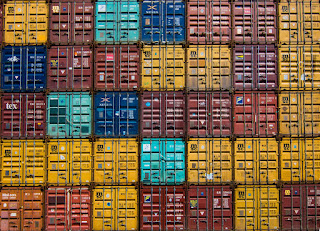Collection of thoughts on equality, equity and social justice. Sometimes academic, sometimes not!
23 March 2019
Brooding of Bradford.....
20 March 2019
Literature, storytelling and patterns in penship
07 March 2019
Storytelling and the Social Model
It seems fitting on World Book Day to celebrate the writing of someone who changed my perspective radically. I was saddened to read of Michael Oliver’s death, he was a pioneer, an academic and an activist. As he states in his introduction to The Politics Of Disablement: “on the experience of disability, history is largely silent, and when discussed at all, it is within the context of the history of medical advances. Just as women and black people have discovered that they must write their own histories, so too with disabled people” (Oliver, 1990). The Politics Of Disablement is a book that helped me move from ‘me’ to ‘we’ on matters of disability rights, and my copy has been well thumbed. I am not alone in experiencing the social model of disability as an epiphany, a shift in attitude, a rewriting of my personal story.
I was in my late 20s when I was introduced to the Models of Disability... 20 years too late I think. Their power and simplicity were life changing, they altered so many truths, by offering a narrative to replace the one I had accepted till then without challenge. The tale I had believed was that disabled people were a problem. The Social Model re-told this tale by highlighting the negative ideas imposed on disabled people. Importantly for me the social model of disability was an acknowledgement that the voice of disabled people – including a political one - had been silenced, and significant action was needed to make space for more disabled storytellers in all areas of life. Oliver’s book helped me understand the past, the U.K. culture and context, that had led to the marginalisation of so many disabled people, denying them voice and visibility in our communities.
Akin to feminism, I found his articulation of disablement was empowering, it was about me, with the characteristics of the medical model that qualified dis/ableism as a named oppression imposed across the population. I cannot imagine going back to not having such a definition - by which I mean a shape that is tangible. As a theoretical perspective his words were not simply a story, but signified a different storytelling - stories told by us, disabled people. For me, the Social Model is symbolic. First, it cites the problem above the individual, in the organisational, institutional and societal conversation we have. Secondly, it interrupts the beliefs in disabled people as passive receivers, in favour of them as articulate participants. It unsettles the old tropes that perpetuate stereotypes, those that talk of disabled people as feckless, work-shy, dirty, costly, evil and faulty, in need of non-disabled people’s help in the shape of care or cure. Taken together these are powerful messages that have often fuelled segregation, discrimination and hate crime. The Social Model is possibly easier to understand than it is to apply to practice, policy and legislation. Its power was life changing for someone who until then had felt they had to change to fit in.
It was years later that I read Michael Oliver’s book. Long before I had started my postgraduate work, at a time I had no understanding of references or theories. But the ideas had resonance, and became central to the Disability Equality Training sessions I facilitated. The Social Model is still a touchstone to which I return regularly, it gives me perspective and an articulation of empowerment in complex matters. At a simplistic level medical model theory refers to asking the question ‘What is wrong with you?’; and the social model theory as asking the question “What is wrong with society?’. A Model is only a representation of reality, one that can benefit from refinements and extension. BUT, its power is in its simplicity. As a storyteller Oliver provided a vision, an alternative that restored dignity, strength and shared power to disabled people within their communities. Without his words I don’t think I could have penned mine. I was not raised within a family where politics was talked about, I had no language to describe a group voice, a political strength or the power of a movement. Oliver’s work gave me a sense of place in something bigger, something defined and something meaningful. I felt protected, supported, and safer by being one of many, a small voice in a much bigger story of social change.
I’ve enjoyed critiques of his work, people who’ve made the effort to celebrate his voice, play with his ideas and understand the changing context in which it sits. I’ve also noticed those who’ve simply criticised, denying its importance and often hugely positive impact. It’s easy to poke holes with hindsight. Storytelling has changed massively over 30 years, but the alternative narrative of the Social Model rocked my world - changed my truth. I imagine it contributed to a fluctuating sense of empowerment for those of us trying to make sense of our personal experience within a public telling that is so often dismissive of the voice of the disabled people’s movement.
Thank you for your words Dr Oliver.
Oliver, M. (1990). The politics of disablement, London: The Macmillan Press.


